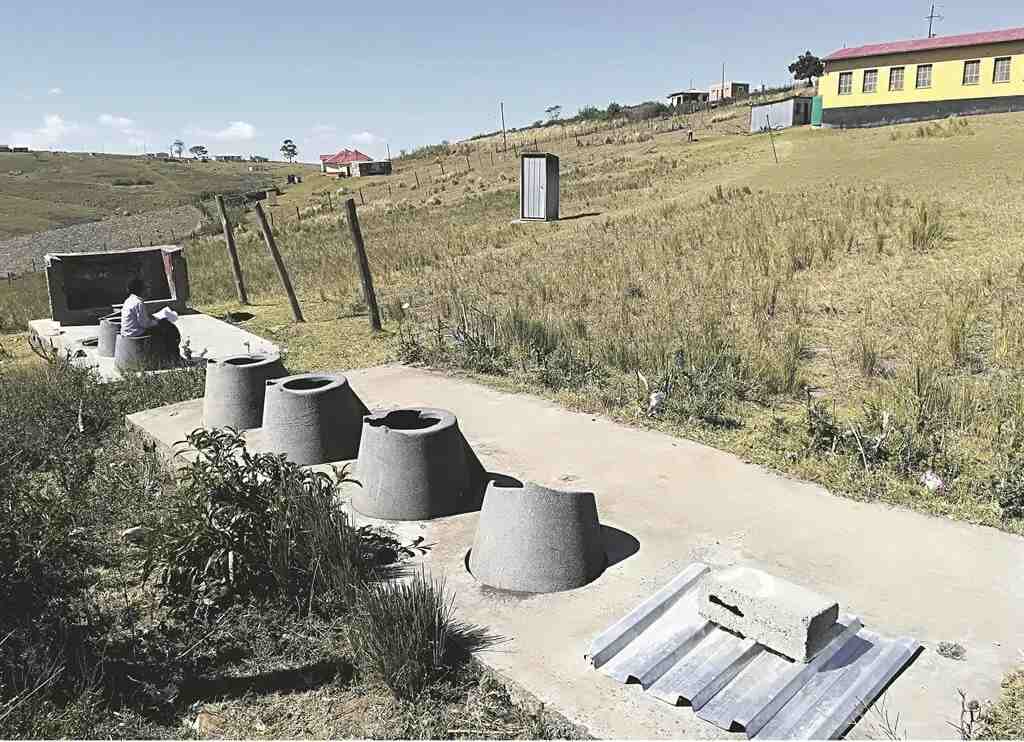
Basic Education misses deadline to remove pit toilets in schools
South Africa’s Department of Basic Education misses its deadline to eradicate pit toilets in schools with some schools still…

Despite years of promises and repeated targets, South Africa’s Department of Basic Education has once again fallen short of its deadline to eliminate pit toilets in public school structures long deemed unsafe and inhumane.
Minister of Basic Education Siviwe Gwarube acknowledged this week that the department had failed to meet the 31 March 2025 deadline for total eradication. To date, only 96% of the work has been completed, with 141 schools still relying on outdated and dangerous sanitation systems.
Years of shifting deadlines and missed targets for pit toilets
The department has consistently failed to meet multiple deadlines aimed at removing pit latrines from schools, particularly those catering to younger learners. Initially outlawed in 2013 under the Minimum Uniform Norms and Standards for Public School Infrastructure, these toilets were supposed to be fully phased out by 2016.
However, the department missed that initial deadline, as well as subsequent ones set for 2020 and again for February 2023. The latest setback continues a worrying trend, with civil society groups like Amnesty International and Equal Education continuing to demand accountability.
Gwarube confirmed that while the department had aimed for full eradication by March 2025, the revised plan is now to complete the remaining schools by July 2025.
“Of the pit toilets identified in the SAFE Initiative’s 2018 audit, as of 31 March 2025, we have eradicated 96%. This is significant progress from seven years ago when the government identified nearly 3 372 schools across the country that relied on these dangerous structures,” said Gwarube.
“Today, we have 141 of those identified toilets left. 90 of these are in construction phases and should be completed between this month and June, taking it to 98% completion. This is an achievement of scale, but it is not a victory.”
Gwarube also highlighted the need for a new nationwide audit to capture schools that were missed in the 2018 survey or built after it.
“While we are at the tail end of the 2018 audit we need to initiate a new audit which will make sure whatever was missed and built after the audit is identified and eradicated,” she added.
No credit claimed for progress on pit toilets
In a notable gesture, Gwarube declined to take personal credit for the work done so far, instead attributing much of the progress to her predecessor, Angie Motshekga, now Minister of Defence.
As part of efforts to increase transparency and public participation, the department has urged communities to report any remaining pit toilets using the Safe Schools App, launched in December 2024.
Eastern Cape and KwaZulu-Natal still lagging behind
Responding to parliamentary questions from Build One South Africa (BOSA) leader Mmusi Maimane in November 2024, Gwarube revealed that Eastern Cape and KwaZulu-Natal remain the worst-affected provinces. Out of the 575 remaining schools with pit toilets, 405 were in the Eastern Cape and 170 in KwaZulu-Natal.
Mpumalanga and Limpopo followed, with 40 and 37 schools respectively. The remaining provinces had reportedly eliminated all plain pit toilets.
Grim consequences continue to haunt communities
The deadly consequences of pit toilets have been well documented. In 2014, five-year-old Michael Komape drowned in a pit toilet at Mahlodumela Primary School in Limpopo. Four years later, five-year-old Viwe Jali met a similar fate in the Eastern Cape.
In 2021, a school principal, Lubeko Mgandela, was permanently banned from teaching after allegedly forcing a learner into a pit toilet to retrieve a cellphone. According to reports, the child was stripped and lowered into the faeces-filled pit by ropes tied around his upper body.
Ongoing advocacy and national shame
The presence of pit latrines in schools remains one of the most pressing issues in South Africa’s basic education system, sparking outrage and continued advocacy from civil society groups. While the department claims significant progress, the reality on the ground still leaves hundreds of learners exposed to unsafe and degrading conditions.
With a new audit on the horizon and a July 2025 target now in place, the public and advocacy groups remain watchful hoping that this time, the department will follow through.
